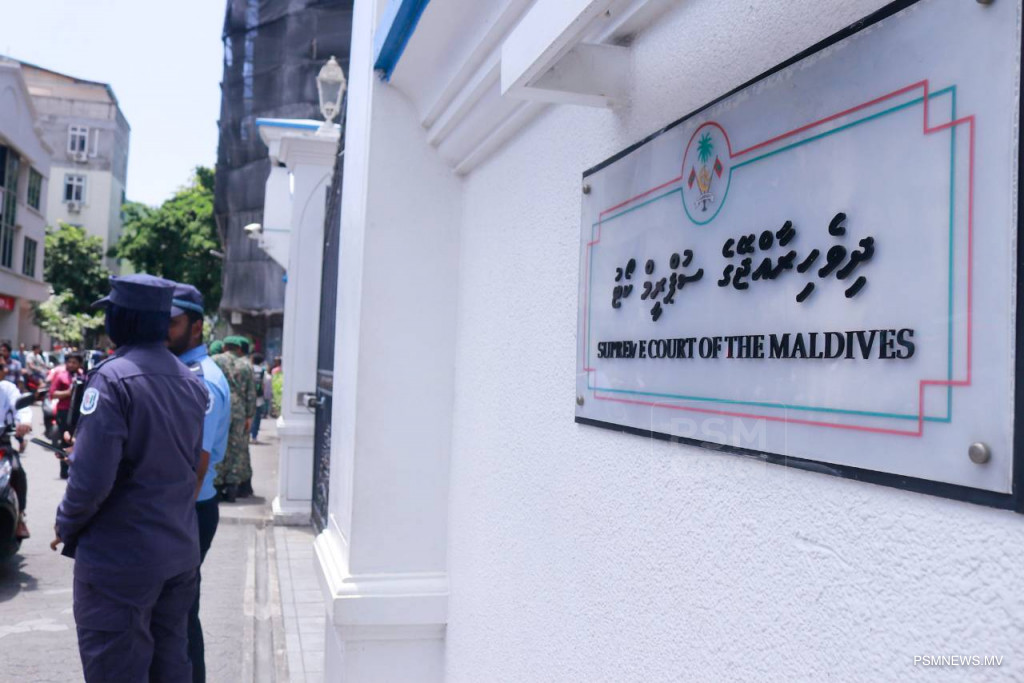Malé, Maldives – The Attorney General’s Office, today, said that the High Court verdict on MWSC vs ICOM obstructs the purpose of the Right to Information Act (RTI Act).
Attorney Generals Office has appealed the verdict of Maldives High Court declaring that they have no jurisdiction to review appeals over the verdicts of the Information Commissioner at the Supreme Court of the Maldives.
Speaking at the hearing regarding the High Court ruling that it has no jurisdiction to review decisions made by the Information Commissioner citing the Judicature Act.
During the hearing today, the AG Office stated that the High Court ruling did not account for Article 72(a) of the RTI Act. The State also added that the High Court had interpreted the law in such a way that it obstructs the purpose of Article 64 of the RTI Act.
Where there is a party unsatisfied with the decision reached by the Information Commissioner as under this Act, the party may appeal the matter to the High Court..
Article 64 of the RTI Act
According to Article 64 of the RTI Act, the party unsatisfied with a decision reached by the Information Commissioner can appeal the decision to the High Court within 30 days.
The AG Office also notes that it is clear that the High Court is the body to address appeal cases and interpreting it otherwise is contrary to the law.
AG Office also referred to a prior ruling by the Supreme Court Justice Aisha Shujoon stating that a Court may not interpret the law in such a way that it diminishes the rights of the people, and the purpose of law must be taken into account when interpreting legislature.
This comes after AG, Riffath stated on March 25, 2021 that AGO would appeal the High Courts verdict out of general pubic interest and based on Article 56, Section 133 (d) and (e) of the Maldives Constitution that they had decided to appeal the case at Supreme Court as the ruling hinders the general right given by the Constitution for appealing cases.
The ruling by High Court was made regarding a case filed by MWSC to appeal the Information Commissioner’s decision to release an audit report as requested by a former employee of the company related to his dismissal.
MWSC then filed the case to the High Court to review the decision of the Information Commissioner under the RTI Act, Article 64.
The Maldives High Court then ruled that it has no jurisdiction to review decisions made by the Information Commissioner under the Judicature Act.
The Judicature Act dictates that the High Court can hear cases as an appellant court in cases regarding decisions made by lower courts or tribunals established under the law.
The High Court stated that since the Judicature Act refers to Maldives Constitution with regards to the meaning of tribunal which states “any institution not constituting a court, authorized by law to adjudicate cases where a dispute arises between two or more parties and to which an application is made for adjudication”, the Information Commissioner cannot be considered a tribunal and therefore, the Court does not have jurisdiction over the decisions of the Commissioner.
This decision was unanimously voted by the three presiding judges, Judge Mohamed Faisal, Judge Mohamed Niyaz and Judge Hussain Shaheed. The High Court however noted that the Supreme Court of Maldives has the jurisdiction to hear appeals on verdicts of the High Court.





